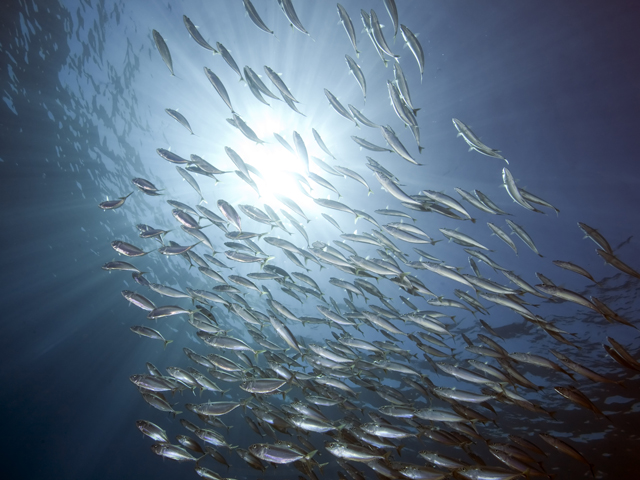DA fish import suspension order to raise canned mackerel prices, business exec warns
By TINA PANGANIBAN-PEREZ, GMA Integrated News Published April 4, 2024 6:20pm An official of the Canned Sardines Association of the Philippines warned Thursday that prices of canned mackerel may increase following the directive of the Department of Agriculture (DA) to suspend the issuance of import clearances for galunggong or round scad, mackerel, and bonito. The […]


By TINA PANGANIBAN-PEREZ, GMA Integrated News
An official of the Canned Sardines Association of the Philippines warned Thursday that prices of canned mackerel may increase following the directive of the Department of Agriculture (DA) to suspend the issuance of import clearances for galunggong or round scad, mackerel, and bonito.
The new DA administrative order only allows the importation of mackerel for canning purposes, the volume of which will be based on product sales, which may be subjected to value added tax (VAT), from the previous year with an additional 10% buffer.
Agriculture Secretary Francisco Tiu Laurel Jr. said Wednesday the suspension would prevent the illegal diversion of imported fish to wet markets.
“Tataas ang presyo pero bababa ang supply (Prices will go up but the supply will drop),” Association Executive Director Francisco told reporters in a phone interview, adding that, “That is the Law of Supply and Demand.”
Buencamino agreed that the illegal diversion of imported fish to wet markets must be stopped, but he lamented that the DA did not consult the industry.
“This is really, in effect, technical smuggling sa aming pananaw. Tama namang ihinto ‘yan ng secretary of agriculture. But medyo nabigla lang siguro ang industriya na biglang nahinto nang walang usapan muna sa industriya, between government and industry so that we can find ways and means on how to control it from going to market,” Buencamino said.
(It is our belief that this is really, in effect, technical smuggling. The secretary of agriculture was right to put an end to it. But the industry was just surprised that the stoppage was ordered without consultation between government and industry so that we can find ways and means on how to control it from going to market.)
Buencamino also believes that local fishermen may benefit from the importation ban.
“Ang bonito at saka galunggong come from deep sea waters. Pero puwedeng Philippine source among local fishermen. Ang mackerel can come only from imported,” he said.
(Bonito and round scad come from deep sea waters. But they can be Philippine sources among local fishermen. Mackerel can come only from imported.)
On April 1, the DA issued Department Administrative Order (DAO) No. 14, series of 2024, suspending the issuance of sanitary and phytosanitary import clearances of galunggong, mackerel, and bonito after receiving reports that these fish imported for canning, processing, or institutional buyers are being diverted to wet markets.
At least 90,000 to 100,000 metric tons of the three fish products are diverted to wet markets every year, Tiu Laurel had said.
However, the Agriculture chief allayed Buencamino’s fears regarding the supply of mackerel.
“I do not believe yung sinasabi nila. Basically, ang nakalagay po sa aking DAO, hindi naman sila mawawalan ng kanilang [suplay para sa] canned mackerel eh. Ang nakalagay doon sa mga canned, for the canners, they can still import the same amount of canned mackerel pero pagbabasehan na yung VAT sales nila,” Tiu Laurel said.
(I don’t believe what they are saying. Basically what is stated in my DAO is that they won’t run out of their [supply for] canned mackerel. The department order states that canned [fish], for the canners, they can still import the same amount of canned mackerel but the volume will be based on their VAT sales.)
For its part, the Department of Trade and Industry (DTI) said it regularly meets with manufacturers.
“So far as of now, wala naman kaming naririnig na may risk of supply issues related to sardines and mackerel, etc. we’ll be monitoring it very closely,” DTI Undersecretary Jose Edgardo Sunico told reporters at the Food Security Cluster Communications Workshop 2024.
Sunico expressed belief that the issue would be discussed when the National Price Coordinating Council (NPCC) meets this month. The NPCC is an interagency body chaired by the DTI which is mandated to monitor and recommend measures to stabilize pricing.
“Interagency ‘yan and the private sector is also part of that council (The NPCC is an interagency body and the private sector is also part of the council). So (the) end-goal… is to recommend to the President how to stabilize pricing. So I’m sure that will be discussed in that meeting. That will come in April,” Sunico added. — VDV, GMA Integrated News














